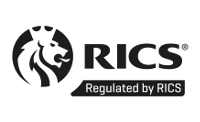Commercial property dilapidations are a crucial aspect of lease agreements that often present significant challenges for vacating tenants. This guide explores the key considerations and obligations tenants must understand to ensure a smooth property handover.
What Are Commercial Property Dilapidations?
Dilapidations refer to the state of (dis)repair in a commercial property due to maintenance neglect and the subsequent remedial costs required to restore the premises to its original condition.
In legal terms, dilapidations specifically relate to breaches of lease obligations regarding property maintenance, repair, and restoration. Understanding these lease and dilapidation obligations is essential for commercial tenants, as claims can arise at any point during the lease term, towards its end, or after expiry.
A Schedule of Dilapidations, typically served by the landlord, details all breaches of the tenant’s lease obligations concerning physical alterations, reinstatement, repair, and redecoration. For commercial tenants approaching their lease end, understanding and preparing for these obligations is fundamental to avoiding disputes and unexpected costs.
Tim Greenwood & Associates are specialist providers of Schedules of Dilapidations in Sussex, Surrey, London and across the South East, acting on behalf of tenants and landlords for 20+ years. Explore our full range of property services to understand how we can assist with your property needs.
Early Planning for Dilapidations Management
As experienced dilapidations surveyors, we strongly advocate addressing dilapidations considerations before signing the lease and well in advance of its termination. A crucial first step is documenting the property’s initial condition through a Schedule of Condition, which provides valuable protection for tenants. This detailed record helps establish a clear baseline for future comparisons and can significantly reduce potential disputes when vacating the premises.
During your tenancy, implementing a regular maintenance programme is essential for managing costs effectively. Professional building surveys can help identify maintenance requirements early, preventing more significant expenses later. Landlords typically serve a Terminal Schedule within the final year of the lease, allowing time for agreement, completion of necessary works, and financial settlement.
Contact us to arrange a consultation on managing dilapidations effectively.
Leasing Properties in Poor Condition: Understanding Your Position
Commercial leases typically place responsibility on the tenant to maintain the property and keep it in a good state of repair. When leasing premises already in poor condition, tenants may face substantial repair costs unless appropriate precautions are taken.
Two primary approaches can help protect your interests:
Firstly, tenants can negotiate a reduced premium or rent to compensate for the property’s condition. A building defects analysis can provide detailed insights into a property’s state of disrepair.
Alternatively, tenants can seek agreements with the landlord to return the premises in a similar condition to their initial state. In this case, obtaining a comprehensive Schedule of Conditions attached to the lease is crucial, and your solicitor should modify the lease terms to reflect these reduced obligations.
Contact us today on 01737 829070 to ensure your lease obligations are accurately documented and negotiated.
Are Tenants Allowed to Make Property Alterations?
Your rights regarding property alterations depend on specific lease terms and landlord permissions.
Typically, alteration consent is granted conditionally, on the basis that the property be restored to its original state upon the landlord’s request. Landlords may also grant alteration permission if they think your alterations will add value to the property.
The landlord may choose to retain valuable alterations or require reinstatement at lease end, with associated costs falling to the tenant. Understanding these obligations early helps prevent unexpected expenses when vacating.
Tenants leasing properties with neighbouring and shared walls may find this challenging to navigate. Understand your obligations regarding shared structures with our Party Wall Matters services.
Managing Landlord Dilapidation Claims
Professional guidance is essential when addressing landlord claims. Disputes regarding Schedules of Dilapidations can become costly, making expert representation crucial.
Our experienced team of dilapidation surveyors employs standardised assessment methods to ensure claims fairly reflect tenant obligations under the lease terms. We can often identify opportunities to reduce claimed amounts or challenge inappropriate items, particularly in cases where the landlord plans significant alterations or demolition.
Dispute Resolution Options
When an agreement proves impossible through direct negotiation, several resolution pathways exist. While court proceedings remain an option, they typically involve significant time and expense for both parties. Alternative resolution methods include mediation, expert determination, and arbitration. Tim Greenwood & Associates can provide expert witness services if litigation becomes necessary.
Need a Dilapidations Surveyor? Look No Further
Our team brings extensive experience in both preparing and defending Schedules of Dilapidations for landlords and tenants. With over two decades of expertise in London, Surrey, Sussex, and across the South East, we provide comprehensive guidance on claim implications for all parties involved. Our approach focuses on reaching fair financial settlements while protecting our clients’ interests throughout the process.
For professional assistance with your dilapidations matters, contact us on 01737 829070 to arrange a consultation with our expert team.
